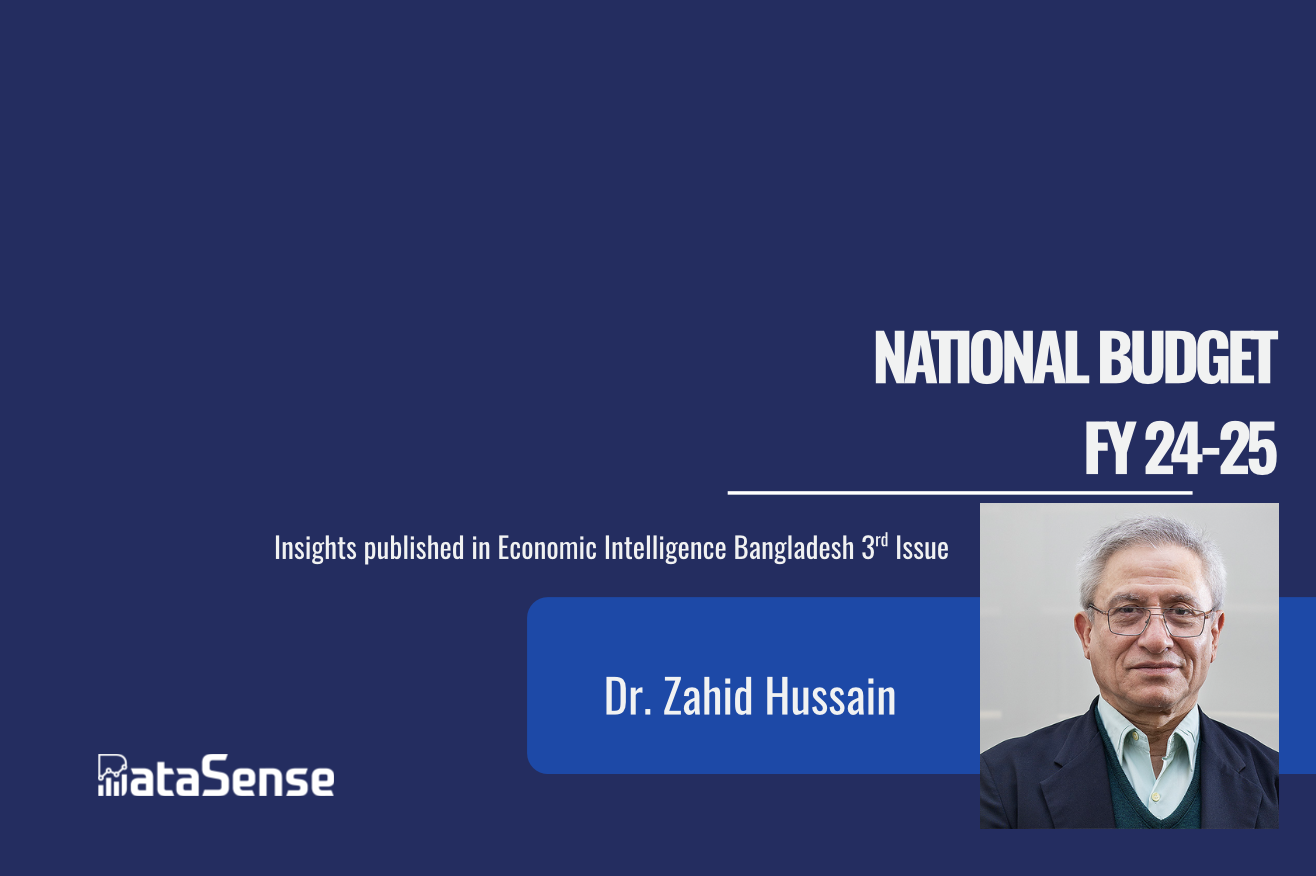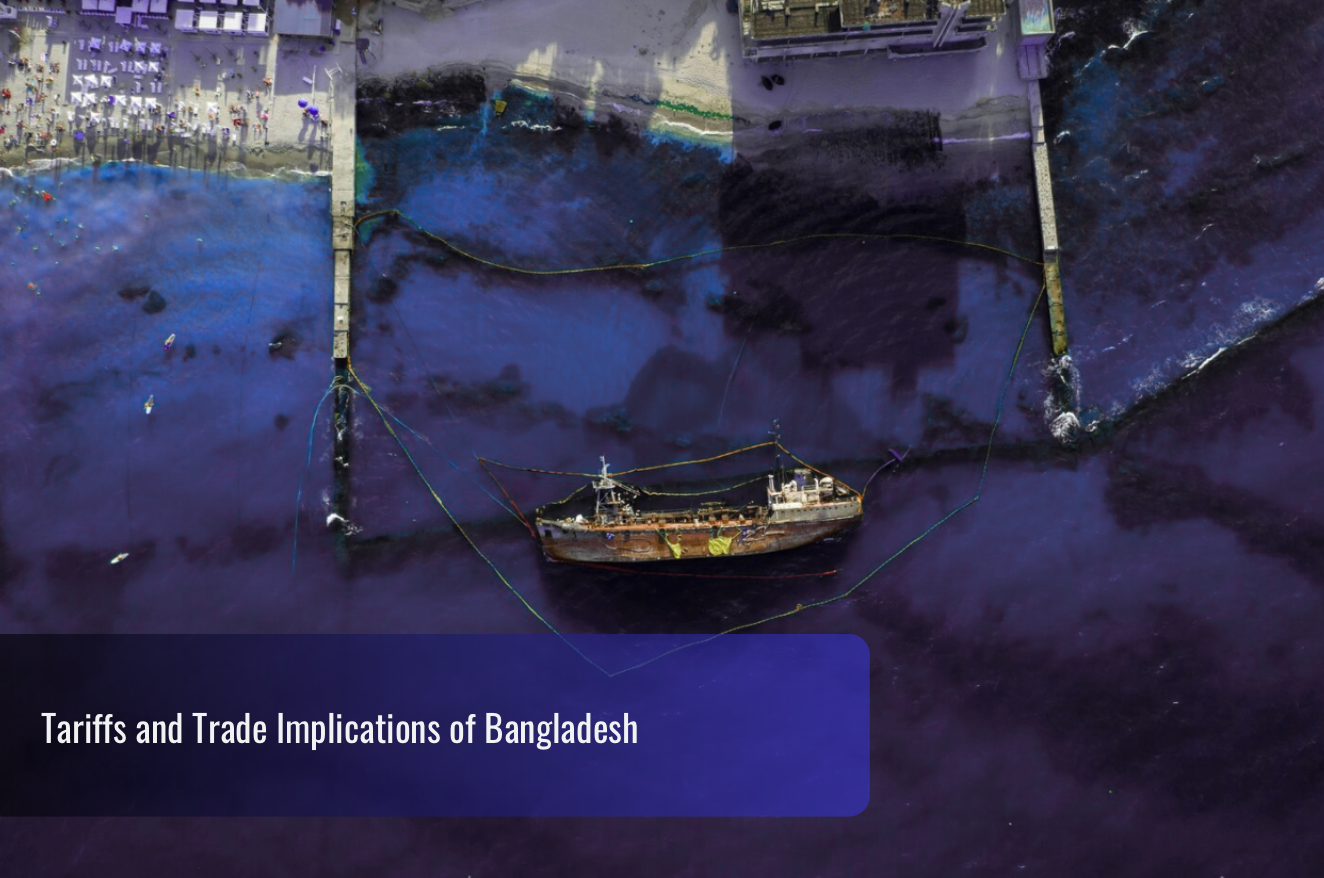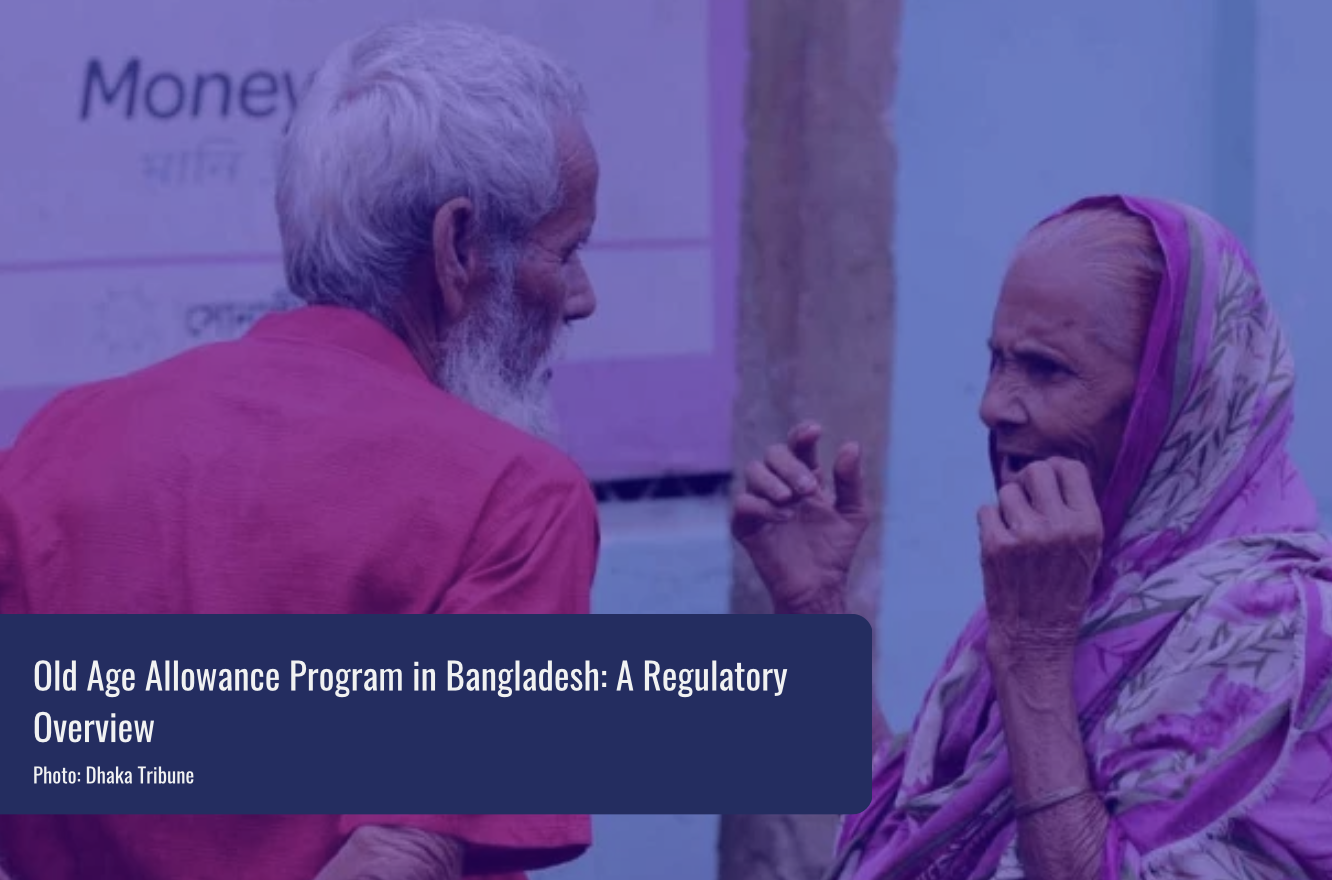DataSense recently sat down with Dr. Zahid Hussain, a leading economist, to dissect the critical economic challenges facing Bangladesh for the Fiscal Year (FY) 2024-25 budget. His analysis highlights the need for immediate, decisive structural reforms to restore macroeconomic health, strengthen institutions, and ensure inclusive growth.
The Three Core Challenges
Dr. Hussain identifies three major obstacles that the FY 2024-25 budget must proactively address:
1. Restoring Macroeconomic Stability
The economy is currently struggling with two primary destabilizers:
- Inflation Containment: The inflation rate is hovering near 10% (for both food and non-food items), which is historically high and requires immediate reduction.
- Dollar Shortage: A sustained period of import restrictions over the last four years has led to a severe dollar shortage. The economy cannot perform at full capacity without alleviating this pressure and increasing the supply of essential goods.
2. Accelerating Structural Reforms
Deep, systemic problems in key sectors demand urgent structural correction:
- Financial Sector Distress: A third or more of Bangladesh’s financial institutions (banks and non-banks) are currently insolvent, posing a serious systemic risk.
- Trade Policy: Forthcoming LDC Graduation requires trade policy reforms to ensure compliance with WTO regulations and secure market access after preferential treatment is lost.
- Energy Sector: The economy faces continuous gas shortages and power outages, which severely impact SMEs and highlight the need for a coherent, long-term energy policy rather than ad-hoc solutions.
3. Fostering Inclusion and Human Capital
The government’s previous “growth-only” strategy has contributed to rising inequality, placing severe stress on low-income households.
- Social Sector Quality: There is an urgent need for correction in the quality and access to public services in education, health, and social protection.
- Business Regulation: Regulations must become significantly more friendly to SMEs and junior startups to foster broader participation in the growth process.
Budgetary Remedies for Macro-Stability and Revenue
Dr. Hussain emphasizes that while macroeconomic problems require broad policy action, the budget must contribute through targeted fiscal tools.
A. Fiscal Consolidation via Revenue Mobilization
Following the IMF’s recommendation, the budget must aim for fiscal consolidation by reducing the primary fiscal deficit primarily through increased revenue mobilization.
- Curbing Tax Expenditures: The government loses an estimated BDT 1.25 lakh crore annually (approx. 3.6% of GDP) due to various rebates, concessions, and holidays. Rationalizing these exemptions could immediately yield an estimated BDT 40,000 to 50,000 crore in additional revenue.
- Fighting Leakage: To combat corruption stemming from face-to-face negotiation, the National Board of Revenue (NBR) must make income tax return filing 100% mandatory online on a full assessment basis. The immediate and effective automation of tax systems is crucial to stop taxpayer money from being lost mid-way.
B. Easing Dollar Shortage (Demand Side)
The budget should not exert additional demand-side pressure on foreign exchange reserves.
- Expenditures on domestically financed projects with large import components must be made more frugal.
- The government should slow down mega-projects in the transport sector (like the proposed Dhaka-Chittagong high-speed rail or underground metro) for which external foreign exchange funding has not yet been secured.
Urgent Structural Reforms: Finance and Trade
1. Financial Sector Stability (PCAF)
To reduce the stress from distressed assets (Non-Performing, restructured, and written-off loans), the Bangladesh Bank (BB) must immediately and consistently apply the Prompt Corrective Action Framework (PCAF).
- Immediate Implementation: The PCAF, which categorizes banks based on NPL, capital, and governance, must be applied now, rather than waiting until March 2025.
- Discipline: Weakest banks must face immediate restrictions (no cash dividends, no bonuses, limits on risky lending) and be given a 12-month period to correct their balance sheets, failing which BB must enforce liquidation, merger, or acquisition.
- Even-Handed Regulation: The regulator must enforce the same measures for the same non-compliance, regardless of the bank’s ownership or management.
2. LDC Graduation & Trade Policy
- Preparation: While the loss of Duty-Free, Quota-Free (DFQF) access is “known,” Bangladesh must prepare for the “unknown” replacement regimes.
- Action: Implement a new National Tariff Policy that is WTO-compliant, ensure faster negotiations for Free Trade Agreements (FTAs), and begin the transition away from export subsidies to focus on building genuine, skills-based competitiveness.
A Call for Accountable Governance
Dr. Hussain criticizes the government’s approach to fiscal management as “hand-to-mouth” and ad-hoc.
- Eroding Accountability: The perpetual practice of setting unrealistic budget targets—a pattern known as the “Bangladesh Theorem” (Original > Revised > Actual expenditure)—erodes accountability and the motivational power of the targets.
- Prioritizing People: Policymakers must move beyond prioritizing expenses like buildings, vehicles, and travel (bhobon, bahon, bhromon). They must increase and ensure the efficient utilization of funds for Health, Education, and social protection to develop human capital and break the cycle of inequality.
This content was originally published in Economic Intelligence Bangladesh’s 3rd Issue, featuring an interview with Dr. Zahid Hussain.





